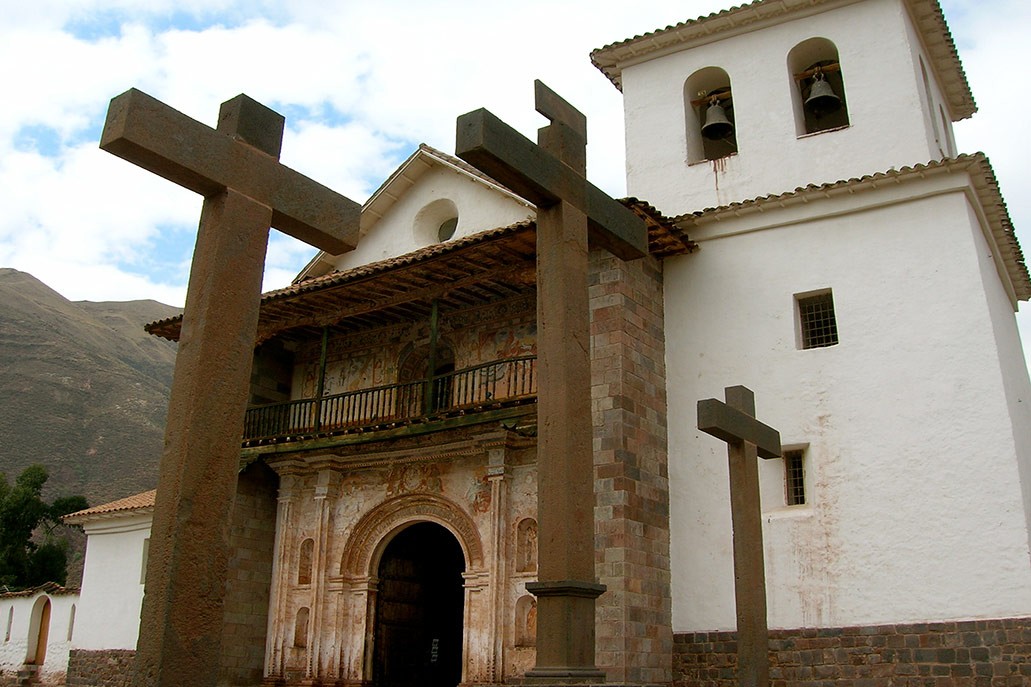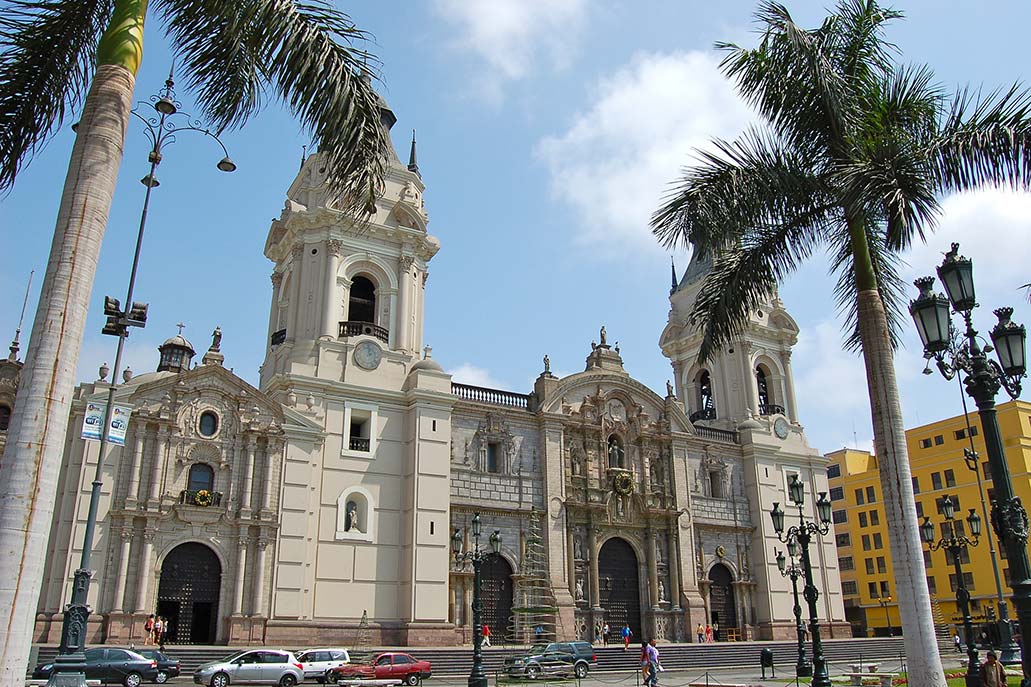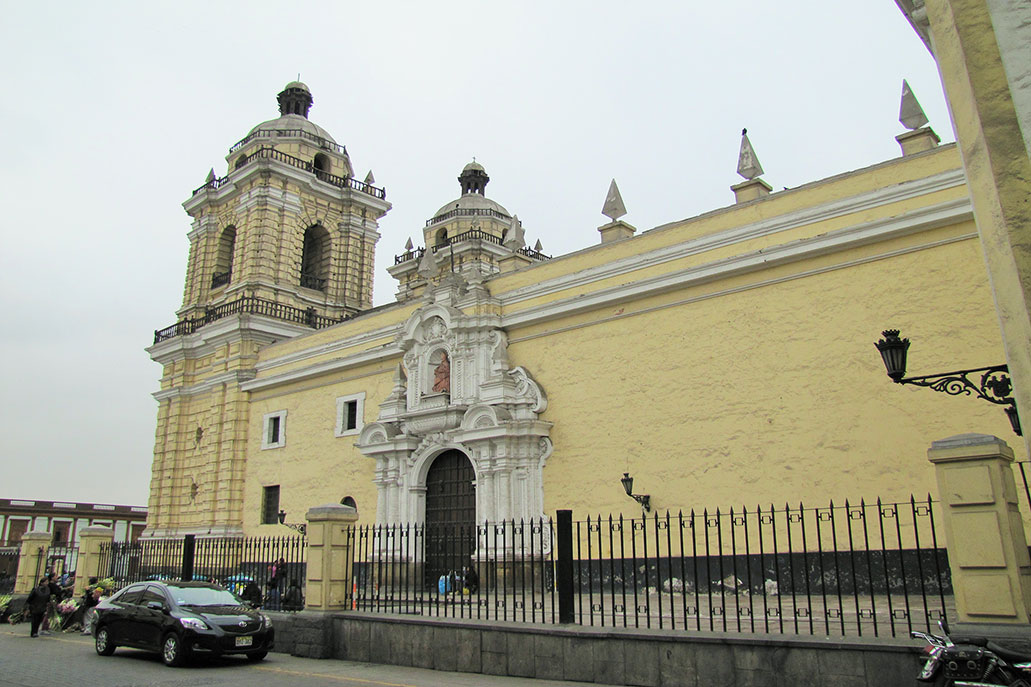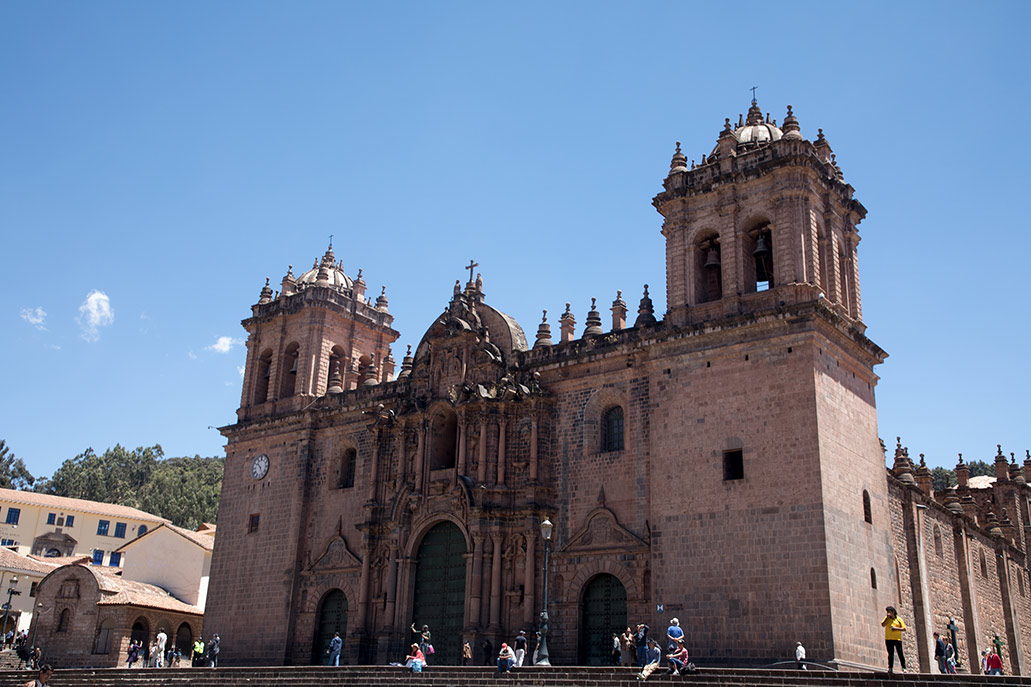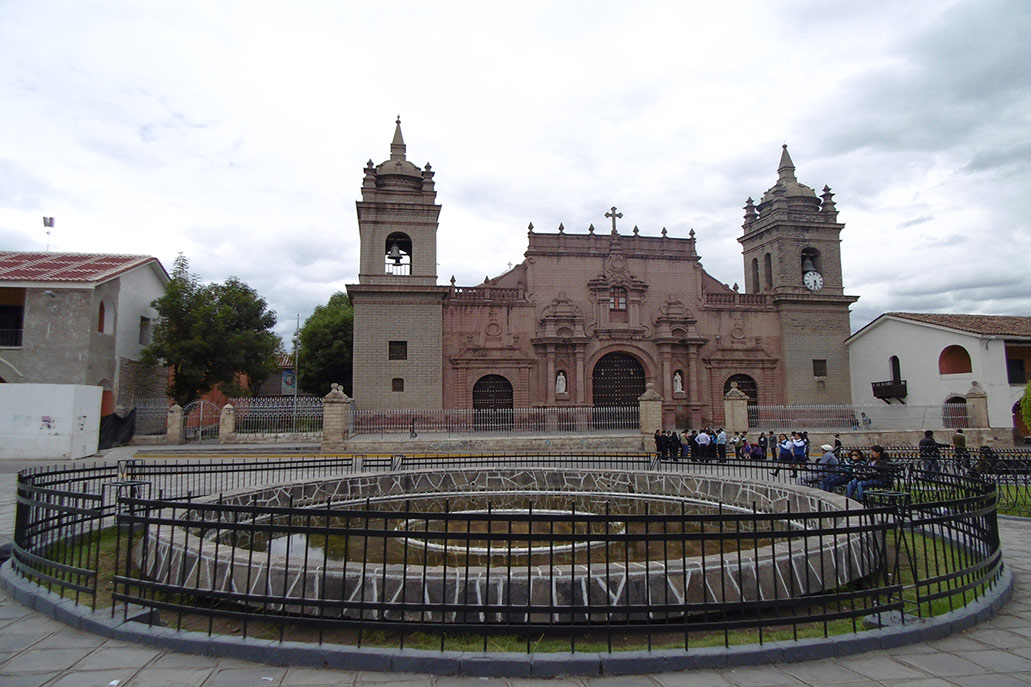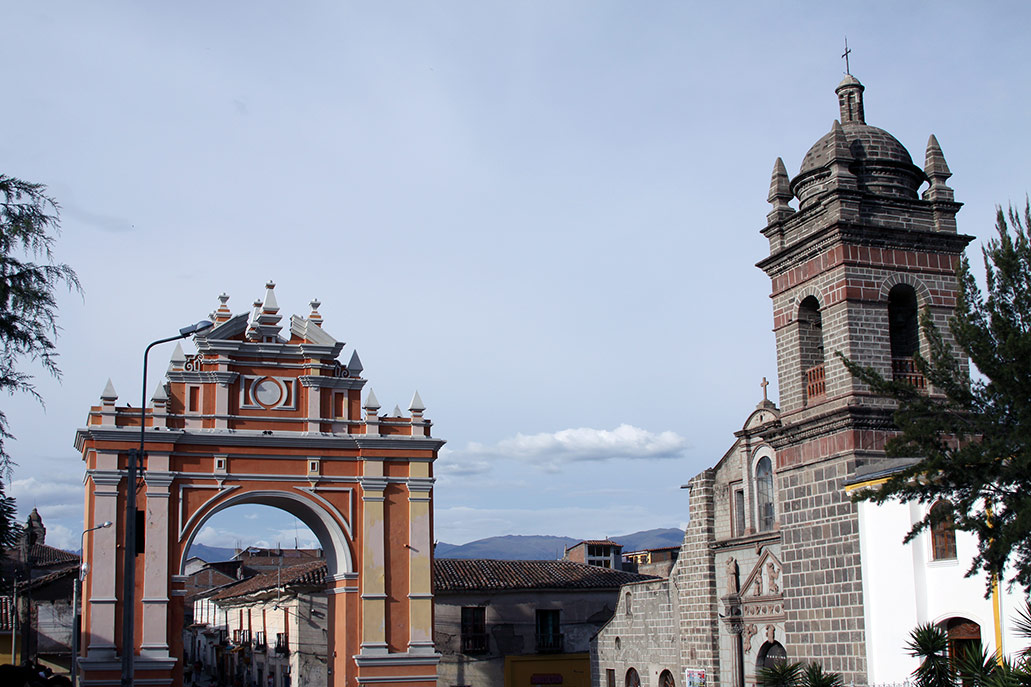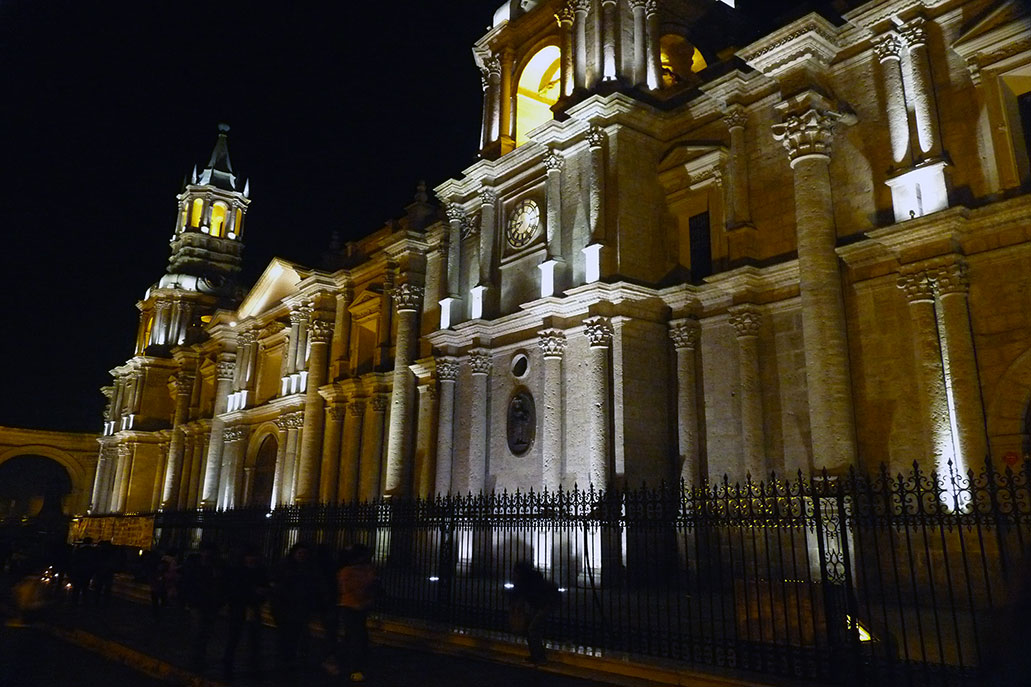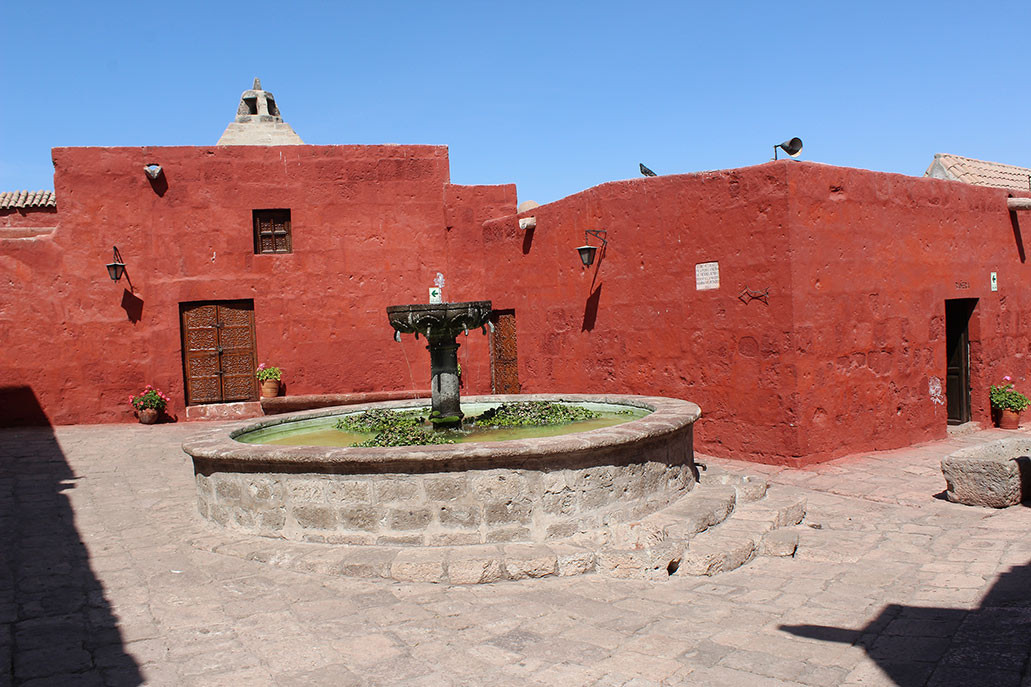The 8 most beautiful churches in Peru
Peru is the country of the churches. In the city of Ayacucho alone, in the south of the country, there are up to 33 churches that date back to colonial times. These temples have beautiful baroque and neoclassical architecture, as well as beautiful canvases, murals, altarpieces and sculptures of incalculable value. The cities with the most representative temples in Peru are: Lima, Ayacucho, Cusco and Arequipa. Get to know the 8 most beautiful churches in Peru.
Content
The church and temple of Santo Domingo del Cusco – The church and temple of Santo Domingo del Cusco is a very special structure as it combines historic colonial architecture with the famous Inca temple of Coricancha, the most important religious site of the Inca Empire. The church and temple suffered the earthquakes of 1650 and 1950. The Inca structure remains unscathed while the colonial enclosure suffered severe damage for which it was rebuilt.
The Cathedral of Lima
The Cathedral of Lima is one of the most important religious monuments in Peru. It is located in the Plaza de Armas of the capital city of Peru. It was built between 1535 (foundation of Lima) and 1649 in a Renaissance and neoclassical style. However, their ships were rebuilt due to earthquakes. It stands out for its chapels and altars decorated with gold pieces, chairs and beautiful canvases.
The Cathedral has a similarity to the Cathedral of Seville. Inside there is a museum where gold pieces and artistic works that date back to colonial times stand out. In 1977, the remains of the Spanish conquistador Francisco Pizarro were found, which are still in the Cathedral museum. At night the beautiful façade is illuminated by a play of lights. It is one of the main tourist attractions of the city of Lima.
- Location: In Jirón Carabaya, in the Plaza de Armas of Lima.
- Entrance price: 10 Peruvian soles for adults and 2 soles for children.
The church and convent of San Francisco de Lima (the catacombs)
The church and temple of San Francisco in Lima is famous for its catacombs, one of the most visited tourist destinations in the ‘City of Kings’. The church is made up of three temples: the temple of El Milagro, the temple of La Soledad and the temple of San Francisco. It stands out for its baroque architecture, its canvases and decoration that dates back to the colonial era, but, above all, for its underground tombs, the oldest in Lima.
The catacombs of San Francisco are made up of underground galleries where the lithic remains of up to 25 thousand people can be seen. In total there are five wells of up to ten meters where the remains accumulated for almost three hundred years (1542 – 1824) are kept. The underground galleries have unclear extensions, even beyond the limits of the temples. Only the catacombs of the city of Paris are larger.
- Location: Between Jirón Ancash and Jirón Lampa in the historic center of Lima (just 350 meters from the Plaza de Armas).
- Entrance price: Foreign adults 15 soles, university students 8 soles and children 3 soles.
The Cathedral of Cusco
The Cathedral is one of the most important historical monuments in the city of Cusco. It is located in the Plaza de Armas. It consists of three joint temples: the temple of the Sagrada Familia, the temple of El Triunfo and the Cathedral Basilica. Its construction took about 100 years, between 1560 and 1654. Before, the palace of the Inca Viracocha was located there. It has a baroque style architecture with mestizo characteristics.
The façade of the Cathedral has a solid shape with three naves and Gothic-style vaults. The main nave has seven arches and inside there are historical paintings, murals, stalls and the most important sculptures of virgins and saints in the city (such as the famous Lord of the Tremors). In total there are 256 precious objects. The visit is from 10 in the morning until 5 in the afternoon. It can be visited on your own or with the Cusco City Tour.
- Location: In the Plaza de Armas of Cusco.
- Entrance price: Foreign adults 40 soles, children 20 soles and students 20 soles.
The Andahuaylillas church in Cusco
The church in the town of Andahuaylillas south of Cusco is also called ‘Sistine Chapel of America’ due to the beautiful baroque decoration with murals, canvases and other liturgical objects inside. The church of San Pedro Apóstol is part of the so-called ‘Andean Baroque Circuit’ along with the temples of the Company of Jesus, the church of Huaro and the church of the town of Canincunca.
The church of Andahuaylillas has a tower with a bell tower, side chapels and a simple façade that contrasts with its beautiful interior. There the mural of the evangelizing program, the main altarpiece, the organ of King David and the Queen, the organ of Los Angeles, the Baptistery and the triumphal arch stand out. The church was rebuilt in 1955 and 2008 due to earthquake damage. Today it is one of the best tourist destinations on the ‘South Valley of Cusco’ tour.
- Location: In the main square of the town of Andahuaylillas, 49 kilometers by road from the city of Cusco.
- Entrance price: Entrance costs 15 Peruvian soles.
The Cathedral Basilica of Ayacucho
The Basilica Cathedral of Santa María or simply Cathedral of Ayacucho is the main temple of the city of Huamanga, recognized as ‘the city of churches’ due to the large number of religious temples (in total thirty-three). The church is in the Plaza de Armas of Huamanga. Its construction dates back to between 1632 and 1672 in a baroque style. In 1972 it was declared Historical Cultural Heritage of Peru.
The Cathedral of Ayacucho has three naves, a dome with an octagonal base and two tall towers with bell towers. Its three access doors on its front are striking. Its interior has countless liturgical objects of gold, silver and artistic works from the colonial era. Highlights include: the main altar (altarpiece to the Virgin of Nieves), the altarpiece of San Pedro, the altarpiece of the Lord of the Resurrection, the altarpiece of the Virgin of Carmen, the altarpiece of the Lord of Burgos and the altarpiece of the Holy Trinity.
- Location: Municipal Portal (jirón 2 de mayo) in the Plaza de Armas of Huamanga.
- Entrance price: 10 soles general admission.
Temple of San Francisco de Asís in Ayacucho
The temple of San Francisco de Asís de Huamanga is one of the most important in Ayacucho and Peru. It is more than four hundred and fifty years old since its construction dates back to 1552, with the arrival of the Franciscan order to Ayacucho. Like the Ayacucho Cathedral, it has three naves. It has a simple Renaissance style façade. It is made of stone with a high tower with a bell tower, the largest in Huamanga.
The interior of the church, unlike its façade, houses beautiful artistic works where its altarpieces, canvases, images and arches stand out. Highlights include its main altar decorated in gold leaf, its organ, the altarpiece of the Virgin Assumed, the altarpiece of the Crucified Christ, the altarpiece of the Virgin of Soledad. The church also has a beautiful cloister where its gardens, small squares, swimming pools, library and more stand out.
- Location: Avenida 28 de Julio, Huamanga, Ayacucho.
- Entrance price: 10 soles general admission.
The Cathedral of Arequipa
The Arequipa Cathedral is the most beautiful temple in the city of Arequipa and one of the most visited in Peru. Like many cathedrals, it is located in the Plaza de Armas. It was built in several periods, from 1540 (foundation of the city) until 1985 with the reconstruction as a result of damage from various earthquakes. It is made of ashlar, the most famous volcanic stone of the ‘White City’ (sillar is a white stone).
The Cathedral of Arequipa has a Renaissance style that stands out for its solid figure, divided into three doorways, side arches, seventy columns and two tall towers with bell towers. Its interior stands out for works such as the clothing of Monsignor Sebastián Goyeneche and the Loret organ. The church has a site museum founded in 2011. It is open from 10 in the morning until 5 in the afternoon.
- Location: In front of the Plaza de Armas of Arequipa.
- Entrance price: The ticket costs 10 soles for Peruvian adults, 5 soles for university students and 3 soles for children.
The church and convent of Santa Catalina in Arequipa
The church and convent of Santa Catalina is one of the most visited tourist attractions in Arequipa and Peru. It is located in the Plaza de Armas of the ‘White City’. It was built by the order of ‘Saint Catherine of Siena’ in 1579 (after the founding of the city). Due to damage from the earthquakes of 1582, it was remodeled until the monastery museum was opened in 1970, one of the most visited sites in Arequipa.
The church, but, above all, the beautiful cloisters of the convent are photographed by hundreds of visitors every day. In addition to a baroque architecture where the ashlar stone stands out, rooms of the monastery stand out, such as: the doorway, the patio of silence, the cloister of the orange trees, the main cloister, the kitchen, the laundry, the bell tower, the art gallery (with canvases from the 16th and 17th centuries) and more. It is open Monday to Saturday from 10 a.m. to 5 p.m.
- Location: On Santa Catalina Street 301, about six hundred meters from the Plaza de Armas of Arequipa.
- Entrance price: Admission costs 40 soles per tourist, 20 soles for adults over 60 years of age and 12 soles for university students.
By Machupicchu Terra – Last updated, January 2, 2024
